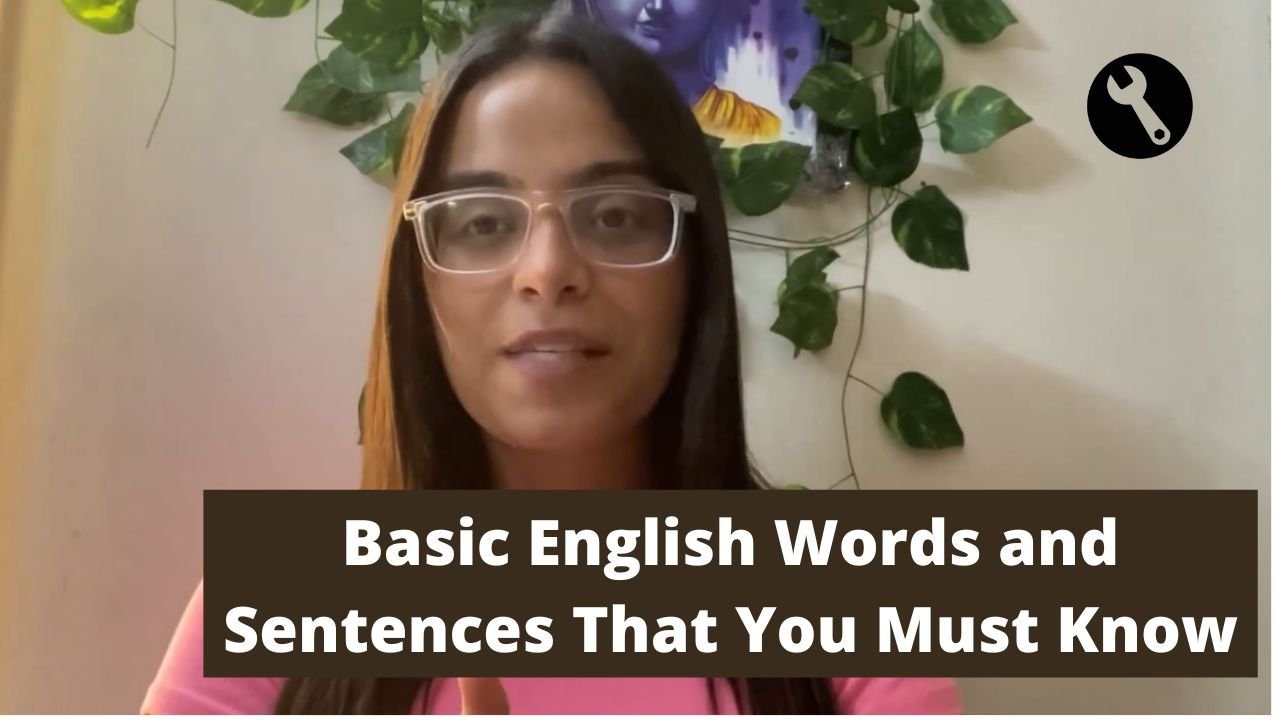Table of Contents
Introduction
Some fundamental English phrases are more valuable than others.
Why not concentrate on mastering these words first? We chose to write this post for you specifically for that reason.
The essential English phrases covered in this post will help you to communicate better if you’re just beginning to learn English or are already fluent.
If you’re soon traveling to an English-speaking country, these will be especially useful to you.
Don’t have time to read the article, then you can watch it here:
[embedyt] https://www.youtube.com/watch?v=IFLpZukAu-8[/embedyt]
30 Basic English Words and Sentences That You Must Know
The following are the 30 basic English words and sentences that you must know:
Hi! I am [your name].
This is a basic greeting when you meet someone new to introduce yourself.
How are you?
When you run into friends, family, or anyone you want to start a discussion with, you usually do it this way.
I’m good, you?
You can use this phrase to tell them that you are fine and ask about them in return.
Thank you
You can use this phrase to thank someone.
Nice to meet you.
This phrase can be used to tell someone how nice you feel about meeting someone.
Excuse me
To excuse yourself, you can use this phrase.
I’m sorry
If you are looking to apologize, you can say ‘I’m sorry.
What is your phone number?
If you want to have someone’s phone number, you can use the above phrase.
What do you like to do (in your free time)?
If you want to know someone’s hobbies, you can use the above phrase.
Where are you from?
You can use this phrase to know where a person is.
What do you do?
You can use this phrase to find out someone’s profession.
You’re welcome
To reply to someone’s”Thanks,” you can use this phrase.
What do you mean?
If you are looking to know the meaning of what someone said, you can use this phrase.
What does _____ mean?
If you want to know the meaning of something or some words, you can write them instead of leaving them blank.
I do not understand.
You can use this phrase if you do not understand something.
(Oh,) never mind.
If someone does not get your point and you want to end the conversation, you can use this strategy.
That sounds great.
If you are impressed by someone’s idea, then you can use this phrase.
What do you think?
If you want to know someone’s opinion, you can use this phrase.
How does that sound?
If you want to confirm how your idea sounds, you can use this phrase.
I really appreciate it…
If you appreciate something, you can use ‘I appreciate…’ and the rest of the words in place of dots.
Could you speak a little slower?
If you want someone to speak slowly, you can use this phrase.
Could you repeat that?
If you didn’t understand something that someone said and you want him or her to repeat something. You can use the above phrase.
See you soon
To tell someone you’ll meet or see someone soon. You can use the above phrase.
Where can I find …….?
For instance, if you are looking for a place, a hotel, a restaurant, or anything else, you can use this phrase.
For example: Where can I find a medical store/ tea shop/ general store?
What’s your name?
You can use this phrase to know someone’s name.
How can I help you?
If you need/ want to help someone, you can use this phrase.
Can I have this delivered?
If you want to have, something delivered.
How much does this/that cost?
To know the cost of something, use this phrase.
Where can I find [item]?
Use this phrase to know where you can find a particular item.
I was about to …….
If you’re going to do something and you want to refer to it, then you can use this phrase.
Example: I was about to have my lunch/dinner.
I don’t know English.
If you want to tell someone you are not good at English, use this phrase. This will be helpful if you have just started learning English and are still not comfortable communicating fluently.
Conclusion
We hope these foundational words and phrases will improve your ability to speak English confidently.
The first few times won’t be simple, so practice is the only and best option.
And always remember to prioritize the most important terms first rather than attempting to memorize the phrases we shared with you today.



Leave a Reply